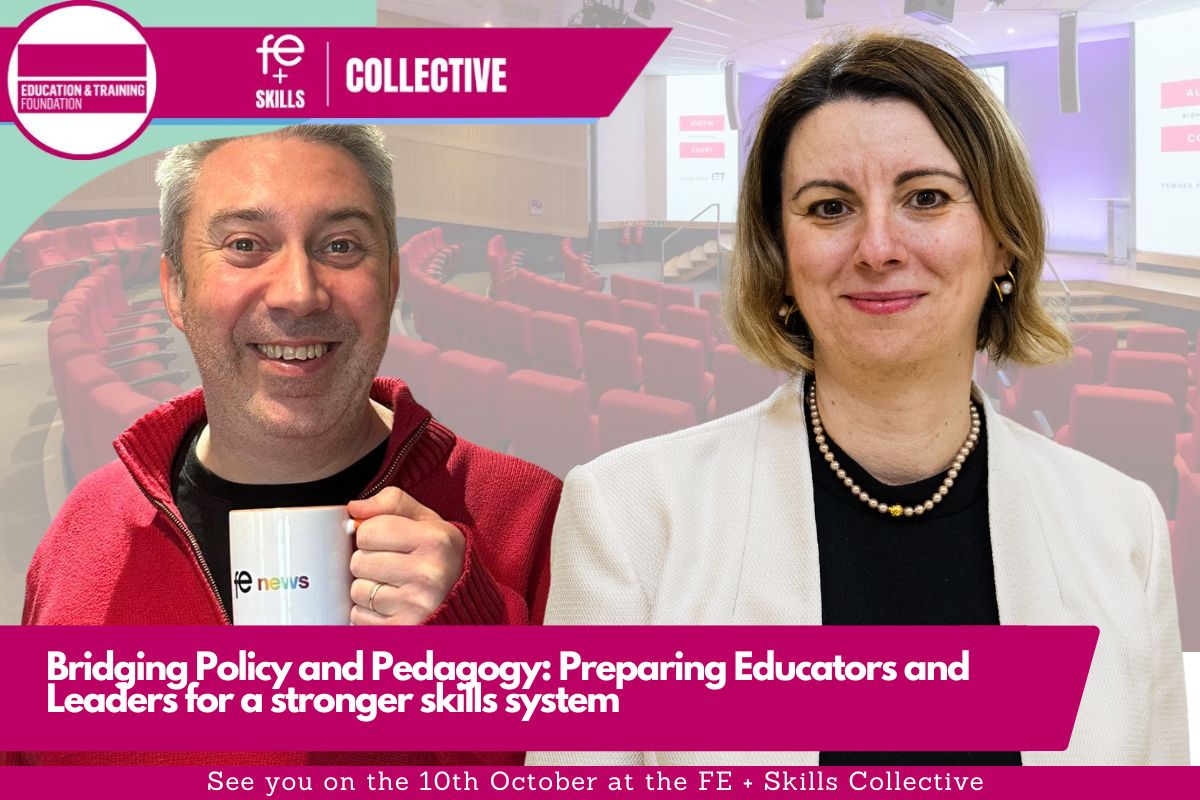What About Adults? Too Many Lack the Skills Needed to be Successful

NCFE and the Campaign for Learning consider the future of post-18 education, in their recent volume of opinion pieces: ‘The post-18 review of education and funding: a review of a lifetime’ , where John Widdowson’s urges Government not to overlook Adult Education:
In the current debate around education and training, one could be forgiven for thinking that the only important issues are those affecting full-time students, whether studying post-16 in a school or college or following on directly from that to study full-time at a university for an Honours degree.
Indeed, much has been made of the apparent success in reducing the number of young people who become NEET at 16 and (modestly) increasing the proportion of students attending university who come from a ‘widening participation’ background.
Despite this, there are increasing concerns that the apparently generous financial climate created for higher education will become unaffordable by both the state and the individuals encouraged to commit to high levels of indebtedness.
Leaving aside any assessment of the real impact of these developments – including the continuing dissatisfaction expressed by many employers as to the readiness for work of the products of our full-time higher education system – parttime undergraduate numbers have fallen by more than 50% since 2010, with no sign that the trend is reversing or even slowing down.
This has been coupled with increasing pressure on the Adult Education Budget (AEB), limiting the opportunities for adults who either missed out on educational opportunities earlier in their lives or need to acquire new skills to maintain their employment, lead more healthy and productive lives in retirement or make a positive contribution to their community.
And whilst the overall AEB has not grown, other developments such as the devolution of these budgets to metropolitan authorities has raised fresh challenges for already stretched providers.
Taken together, this paints a grim picture for anyone who doesn’t succeed the first time round at school, college or university.
As the ‘Fourth Industrial Revolution’ gathers pace, the concept of a ‘second chance’ will become redundant as individuals need multiple ‘chances’ to improve their skills and knowledge in a competitive global economy. Indeed, the risks and consequences of leaving any of this to chance are unthinkable.
Positive policy changes are essential and overdue.
Part-time study gives those who missed out on the opportunity to study full time at a younger age, through choice or circumstance, the chance to gain higher level qualifications.
It allows those in employment to acquire the skills and knowledge to gain better jobs or acquire the new skills demanded by increasingly technology-dependent industries as the world of work changes.
Adult education at lower levels is equally essential.
Too many adults are without the skills needed to be successful, either at work or in their community. Improved educational qualifications can be a gateway back into employment for those at the greatest risk of exclusion. Increasing levels of isolation in an ageing population and issues of wellbeing, including mental health, can be changed for the better if people can learn new skills to help themselves and others.
Low levels of education lead to impoverished lives in all senses of the term.
A must do reform: Foster retraining at Level 4-6 through part-time fee loans
The government must recognise that part-time study in higher education is an essential part of the educational landscape and critical to adult reskilling. Fee loans should be made available to enable adults to achieve a second Level 4, 5 or 6 where that second qualification is part of a career plan.
Recommendation 1: Develop a unitised curriculum in higher education
Higher education providers should be encouraged to develop a unitised or modular curriculum within a national credit accumulation framework, with appropriate entry and exit points to encourage a culture of continuous learning with flexibility.
This will allow those uncertain about either their ability or commitment to studying at higher level to make a start without feeling overwhelmed by the financial and time commitment.
Recommendation 2: Strengthen careers advice and guidance for adults
Careers guidance is fragmented and poorly resourced. Employers cannot be expected to give the impartial advice needed for long-term career planning.
Government departments such as Department for Work and Pensions (DWP) are focussed on steering individuals into employment rather than supporting them to build the skills and knowledge for a long-term career.
Advice and guidance for adults should be placed on a sound footing, possibly repurposing the work (and budgets) of DWP to act as the prime resource for individuals looking to improve their qualifications.
Recommendation 3: Introduce means-tested maintenance grants for adults
Means-tested maintenance grants should be made available to adults on lower level and higher level qualifications – across the adult further education and higher education sectors – to support those furthest away from the workplace or similarly distanced from having the skills needed to live an independent and rewarding life.
John Widdowson, Principal, New College Durham










Responses